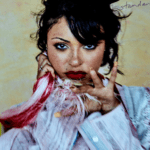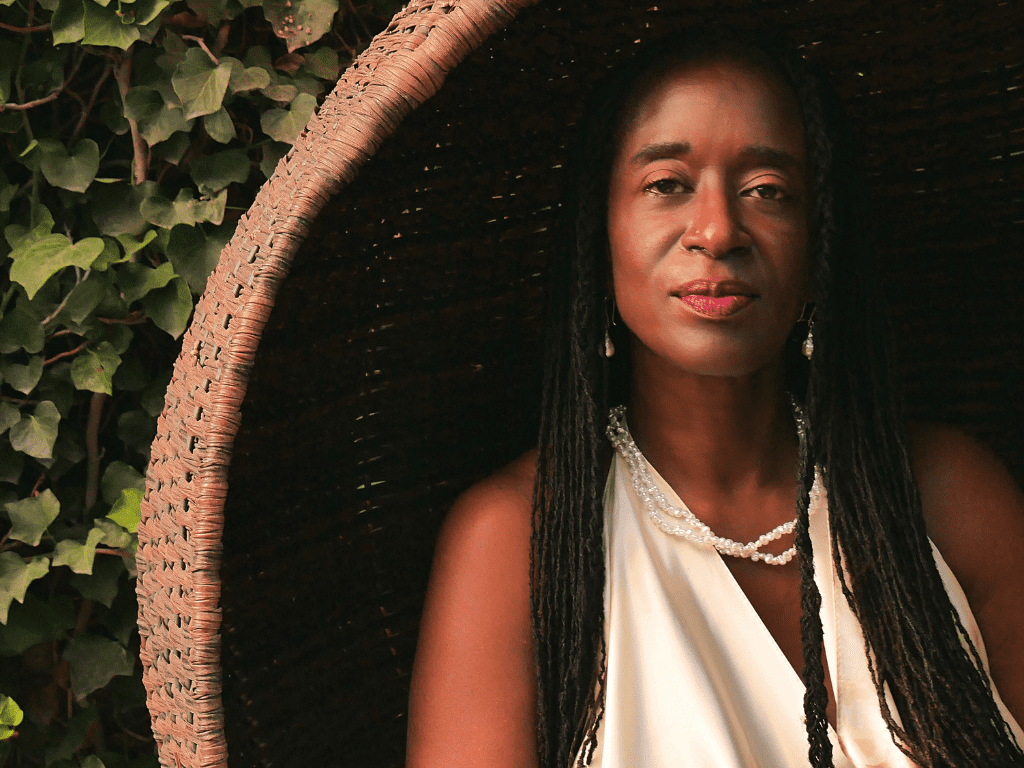
BOUVIER is back with “Mother Tongue Mantra,” a song that’s as much a meditation as it is music. Deeply personal and spiritually rich, it’s inspired by her Gullah Geechee roots, her years as a caregiver, and a lifelong commitment to cultural and social justice. As the lead single from her upcoming album, Mother Tongue: An Ancestral Jazz Journey, the track weaves ancestral rhythms, storytelling, and a call for unity. In this conversation, Bouvier opens up about the dreams and experiences that shaped the song, the healing power of music, and why she believes sound can change the world.
“Mother Tongue Mantra” draws from ancestral wisdom and spiritual traditions. Was there a specific moment or ritual that inspired this song, and how does it reflect your personal spiritual journey?
Thank you for your interest in my music. My primary African American heritage is Gullah Geechee, and I am from South Carolina, USA, through my maternal family. The Gullah Geechee of the southern USA are an ethnic group that retained and transformed music and many cultural practices from our West and Central African ancestors for hundreds of years. The music of my heritage has always been a spiritual force and comfort to me, a tool of the Creator to help us connect with family ancestors, who can still guide us, as well as the Lord for hope, strength, and healing.
The voice and breath are divine, ancestral energy. Often, we sing acapella because we see the voice as an instrument equal to any in a band or orchestra. Voice is an unmediated channel to God’s and the ancestors’ presence. It’s one way that I experience the divine presence as a Christian in the millennia-old African tradition.
I am also a master life coach and interfaith spirituality advisor, working with people of all backgrounds to help them life purpose and deepen their relationship with the divine however they define it. I deliberately use music for prayer, meditation, mindfulness, personal development, and constructively processing grief. Throughout my life, creating music has been a way of managing traumatic stress, converting pain to conscious joy and gratitude.
The past several years have been very challenging as I care for my mother, who is struggling with Lewy Body Dementia, Parkinson’s, and other ailments. There also have been other major family changes and dislocations as well as social and political challenges such as Covid, the fires of California, and a rise in violent sexism and racism that has affected me directly and my loved ones.
I’ve written many songs and am now working on my third album during this tumultuous period. Sometimes, my maternal grandmother, a wise Gullah Geechee ancestor of strong faith who always hummed and sang to pass the day, process stress, and praise God, appears in dreams with melodies and rhythms to comfort me. Of course, I hear and interpret these dream songs through my own personal sonics.
How I hear the world is certainly influenced by my elders’ beautiful Gullah Geechee-inflected speech cadences and lyricism, which I embodied since before I remembered, although I can’t speak Geechee. I grew up with people who spoke Haitian Creole and Puerto Rican Spanish as part of my early soundscape, too. The sounds of the Black Church, not just its music but prayer and people speaking in tongues, deeply influenced me as well.
Catholic Schools, particularly the chants from mass and recitation of catechism, and Sabbath prayers from the neighbourhood synagogue. I also grew up in Philadelphia, Pennsylvania USA, a city with a special rhythm and resulting music called “The Philly Sound” that mixed jazz, R&B, soul, and funk represented by vocalists and songwriters like Phyllis Hyman, Rachelle Farrell, Jean Carne, Frankie Beverly, Kenny Gamble and Leon Huff, who sang about love, personal empowerment, and social justice, deeply influenced my sound.
My music is also shaped by my lifelong love since childhood of poetry, my eventual study of religion, spirituality, music, dance, culture, arts as an anthropologist specializing in Africa and its Diaspora particularly the Yoruba people of Nigeria, as well as Afromusic and dance from Brazil, Mexico, and the Caribbean.
I’ve lost most of my always very basic Yoruba language ability now, although the tonal rhythms of the language along with West African pidgin English are deep parts of me too. All these experiences influence how I hear the world and interpret the soothing songs my dear grandmother’s ancestral visits bring to me.
To me, these sonics transport culture across continents and time, imparting comfort and wisdom of the Lord through ancestors like my grandmother. The old ones and old-school music still speak to us. I’m hoping my songs (that I variously call contemporary ancestral music or Black Chants) can help all people hear their inner divinity, bringing solace, a sense of inner peace, joy, and hope to others in hard times, just like they do for me today and my ancestors before me.
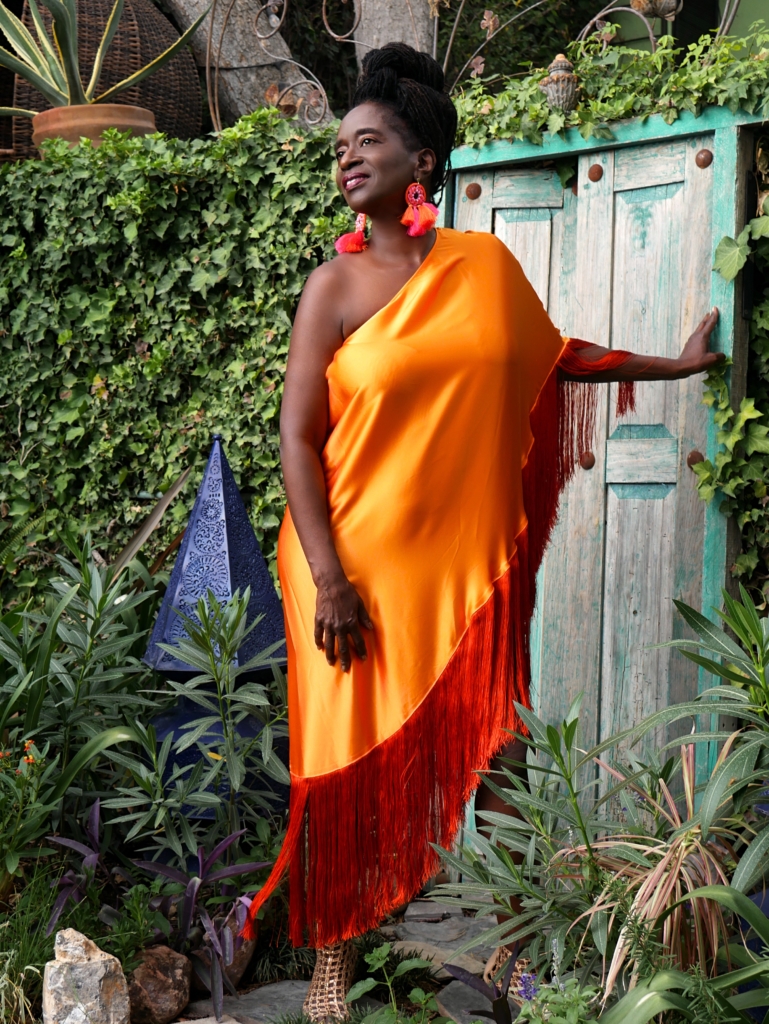
You mentioned that the song came to you in a dream and through ancestral visitation. How did you turn that ethereal experience into a song? Was there an image or feeling that stood out as you crafted it?
One night in early November 2024, I had a very difficult caregiving day with my mother where I was struggling to accept that beyond making her comfortable, there was little anyone could do to improve her health.
Although I had fallen asleep, my rest was fitful, including a few nightmares about my mother’s death. Once I finally fell into a deeper sleep, my grandmother visited me in a dream with the melody and rhythm of what I would eventually name “Mother Tongue Mantra.” The dream, rhythm, and melody lasted all night.
In the morning, as soon as I had awakened, I recorded it on my cellular phone. Then, in meditations or prayer over the next two weeks, the lyrics for the song emerged. In particular, the prayers were about my mother’s continuing life impact and immortality as she approaches the end of this life.
Much of my work as a scholar, advocate, and philanthropist has been about the often unheralded role of women, Black, Indigenous, poor people, and Diasporas—the people frequently invisible in history, how they innovate and pass down culture. There’s this concept in linguistics, culture theory, and anthropology called “The Mother Tongue.”
It’s about how people acquire language and maybe even the basic rhythms of a culture even without consciously knowing it. More than the language you’re born into, it also refers to the sounds you even hear and sensations one feels in the womb via one’s mother, perhaps the basis of cultural transmission.
I created a final draft of the song’s melody, rhythm, concepts, and lyrics. Then I fully embodied it by singing it acapella as a meditation in different contexts for weeks. Then I let a couple of friends and family hear it, and it moved them in its voice-only form, too.
Because of both its culturally specific, Afroroots and universality in the experience of motherhood, I realized that Mother Tongue could be a good conceptual anchor for an album of Diasporic, genre blurring, Black New Age album of my original and newly arranged cover songs to help people manage and maybe even feel some healing and hope in tough times.
When I say “Black,” I’m not necessarily only referring to skin color. I’m also referencing the descendants of Africa’s Indigenous peoples who are diverse but are also a part of an evolving, millennia-old, global African culture, including AfroAmericans, Afrolatin, Afro-Caribbean, AfroArabs, AfroAsians, Africans—about a quarter of the world’s population and growing. And our musical heritage has African elements that mightily contributed to the development of American music from rock to blues, jazz, rock, and hip hop.
Often, people don’t even know that African Americans like me have a culture, retaining and transforming their African roots, mixing it with other influences to create distinctive but evolving worldviews and cultural practices.
So, they mistakenly believe that referencing the Black roots of any American musical form is somehow racial, when, in fact, it’s just a historical and cultural fact. I’m blessed that since I took the leap of faith to take my lifelong Afrodiasporic spiritual music practice public in 2020, all kinds of gifted angels miraculously appeared in my life to help me.
Jazz virtuoso, Jose James, was a jazz vocal coach in 2020. He’s the first person I told my secret to. almost lost my dream of doing a spiritual jazz album. He encouraged me and introduced me to Ben Williams, a Grammy-winning bassist who was the music producer on my first album, ‘Blachant,’ and co-producer on my 2024 second album, ‘I Wish You Love, Brazil: Bouvier Live!’
Jose also introduced me to Grammy-nominated songwriter and co-founder of music label Rainbow Blonde, Talia Billigs, who taught me aspects of the music business as I’ve become an executive producer.
I sent my newly created “Mother Tongue Mantra” music to Ben to arrange the song’s instrumentation. I’ve been preparing this and other songs for concerts this year. I was fortunate to rehearse “Mother Tongue Mantra” live in New York City in February, invited by one of my jazz vocal coaches, the outstanding Jazzmeia Horn. It was a good test of the song.
Then I assembled instrumentalists and recorded the song with some San Miguel de Allende, Mexico colleagues where I live part of the year. And “Mother Tongue Mantra,” as you hear it in the new single release, was born!
I’m proud to be not only a composer, lyricist, and executive producer, as I am with all the songs I release. But this time, I am the sole music producer, a new phase of growth as a healing artist, which started last year with the release of my second album, ‘I Wish You Love’
The song honors maternal wisdom. How has your relationship with your mother and your Gullah Geechee heritage influenced your understanding of maternal knowledge?
As you can imagine, caregiving for an ill parent with a progressive disease for 14 years has had challenges. Providing this support while working, trying to produce my art, raising my now 34-year-old child, attending to community obligations, a divorce, relocations, and social and environmental upheavals made it even more difficult. But it is an extension of a duty and personal commitment to family that’s part of my culture and has been an honor.
But I am very blessed to have a mother and maternal elders in general (aunts and mentors) who I witnessed make dreams come true with faith, prayer, hard work, mutual support, strength of character, smarts, and love, literally creating ladders of opportunity that carry and change the world against amazing odds for us.
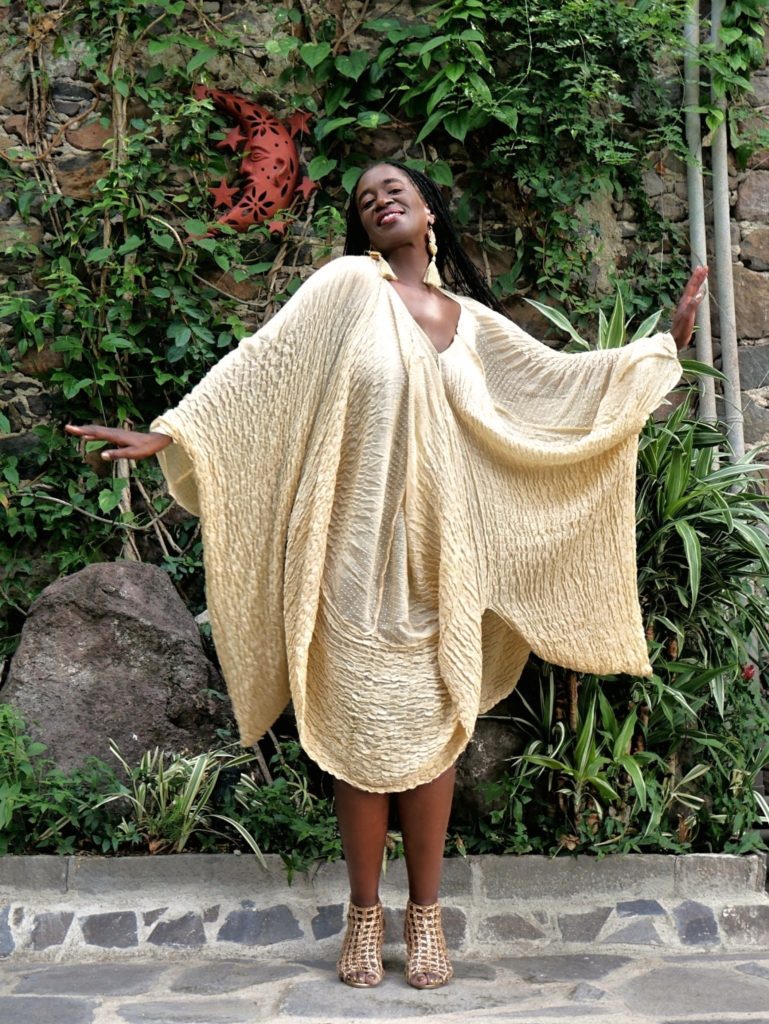
And I see women, including Black women, do the same everywhere I’ve traveled and worked. As I meditate on my mother’s life, I feel connected to all the unsung Black and other mothers of creation, life, music, art, and society. I am filled with a profound sense of not only gratitude and connection to her and our collective legacy as Black Mothers and women in general.
My role in nurturing and advocating for the next generation, including my child, is even in sharper relief. I also feel the profound, foundational role of Africa as the Mother of Humanity and Mother Earth as the lifeforce that sustains and should unite us all as one human family.
I named the song “Mother Tongue Mantra” for these reasons. Singing it as a meditative prayer, a kind of psalm, has helped me, along with my faith, accept my mother’s mortality, my role as her child. The tradition continues and will live on even when our progeny. This song is helping me accept in a mind-body-spirit way that my mother’s and all our loved ones’ essence will live on as part of our memory, cultural heritage, future, and the cosmos.
Your music is deeply tied to social justice and cultural activism. How do you see “Mother Tongue Mantra” contributing to the larger conversations of unity and healing in today’s world?
As an anthropologist and urban designer specializing in Africa and its Diaspora, I’ve worked to advance racial and gender justice, human rights, unity, cultural understanding, and economic justice for all people my entire career, mostly in global philanthropy and finance. My purpose has been to do my part to heal people, society, economies, and the planet.
For the past five years, I’ve added my lifelong love and private practice of my culture’s music to my humanitarian purpose. The world still holds great kindness, but we also see the accelerated rise of hate, violence, and economic dislocation, especially since 2020 with the disruptions of Covid.
Advocacy and funding equity are important. But as we see, laws can change, but they don’t necessarily open people’s hearts. Music can change people’s souls, give us a shared sense of community, and help unify people.
With both “Mother Tongue Mantra” and all the 30 songs I’ve created since 2020, I hope to give people at least a taste of catharsis, love, community, healing, and joy during a time of tumultuous change. In addition, as a professional musician now, I’ve been shocked by the many economic inequities built into the industry.
Also, the world does not know the culture and history of the Afro-rooted music it loves. In 2021, I added a Music for Change program, now called Soul Fusion, as part of a nonprofit I founded, The Women Invested to Save Earth Fund (WISE).
With a music education and festival initiative, as well as a music ensemble the latter co-founded with vocalists Danielle Simmons and StephyLoren, I hope to raise public awareness of contemporary music’s Afro contributions, fund charities in the communities where we perform, and advance equity for musicians.
By combining my musical, organizing, and finance gifts, perhaps I can reach more people, just like Afromusic and other women ancestors, who created powerful work that helped to change the world for good. “Mother Tongue Mantra” reminds us of our common humanity. Together, we are greater than our differences.
The track features musicians from Mexico and Cuba, including Grammy-winning bassist Ben Williams. How did these collaborations come together, and what did they bring to the song that surprised you?
Ben does not play on the song “Mother Tongue Mantra,” but he arranged the song’s instrumentation. However, he did play bass on my 2022 debut album ‘Blachant’.
I am fortunate to have a home base in one of Mexico’s artistic and music centers, beautiful San Miguel de Allende. Like many jazz and soul artists, I see the commonalities among African, Latin, and African American music as children of AfroDiaspora history and culture.
I’ve been fortunate to work with fine, Afro-influenced musicians throughout the Americas and Africa. I wanted the song to combine my gospel, African, and jazz roots with an AfroLatin undercurrent. San Miguel de Allende’s Carlos Vargas on piano, Sergio Carillo on bass guitar, and Isidro Capilla on drums, all from Mexico originally, and Freddy Thomson, who lives in Mexico but is an Afro-Cuban saxophonist, played the song’s global Afrofusion vibe beautifully.
The song has jazz, gospel, soul, and neo-funk elements. I think the gospel groove was probably the least familiar to the band, but they did a terrific job conveying and mixing it with the song’s other genres.
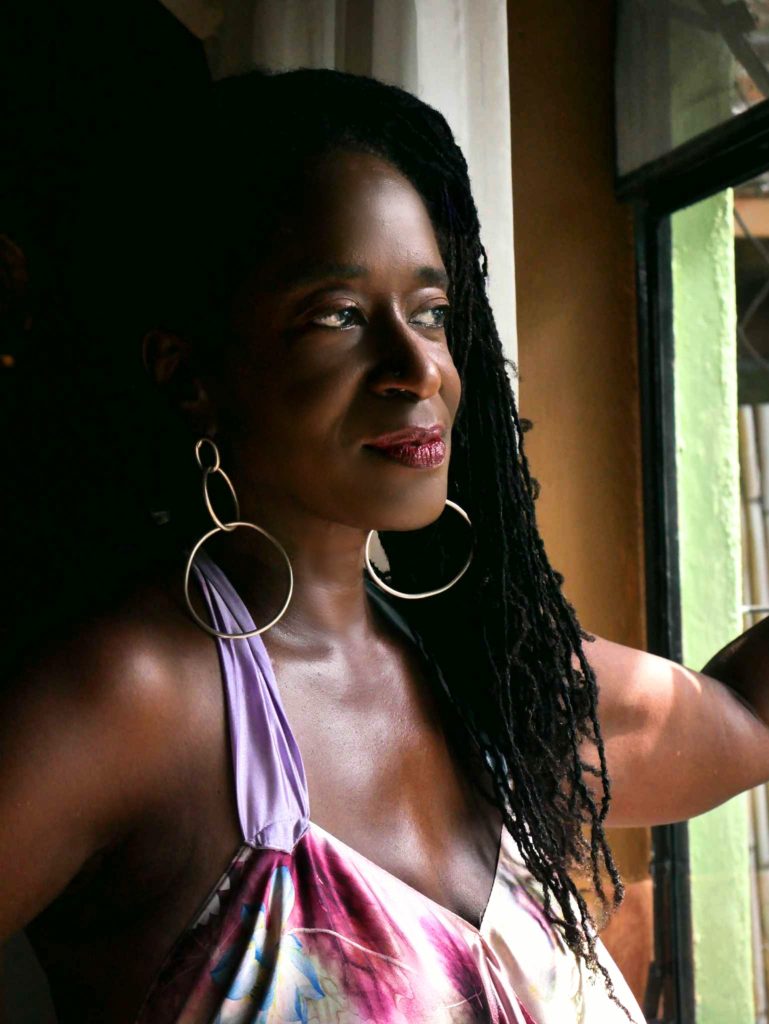
Your music blends Afro-spiritual and jazz traditions. How do you honor these traditions while also pushing boundaries and creating something new, especially with your upcoming album, Mother Tongue: An Ancestral Jazz Journey?
Because my ancestry, gestation, and earliest socialization are authentically rooted in Afro-spiritual and jazz traditions, it’s not just been a musical or new career direction. My Afromusic is my culture and identity, an embodied way of life for my more than 6 decades on the planet.
I also am a cultural anthropologist who has traveled the USA and world studying and chronicling, and teaching Diasporas in general, as well as my Afroculture, history, music, dance, and cuisine to advance it for joy and justice.
I am exposed to and hear nuances through my life as an AfroDiaspora scholar, practitioner, and woman of faith that give me a unique worldview organically rooted in my Black heritage and integrated in all I do as a creative.
I hope to expand my audience and grow as an alternative music artist, creating new contemporary music that draws on the African heritage so essential for the jazz art form and all Black culture. As I get more enmeshed in the music industry, I intend to keep my voice despite the pressures of commercialization. I am also constantly studying and practicing to hone my technical skills as a musician.
Most of the remaining songs on the ‘Mother Tongue’ album will include Yoruba, samba, bossa nova, and axe vibes. So, I am also including Brazilian instrumentalists to bring the Afrofusion experience full circle. While Afromusic has a long history of fusion by definition, I think perhaps my emerging innovative contribution is a singing style that I call “blachanting” (pronounced Black Chant), also the name of 2022 debut album.
From the Geechee-inflected singing of my childhood, gospel singing and Holy Ghost praying of the Black Church, upbringing in Catholic Schools with Gregorian chants, my study of Yoruba religion and Christianity in Nigeria, as well as exposure to Hindu mantras, I hear and feel jazz singing as a form of chanting. For example, to me, scatting is not necessarily just nonsense improvisation but can be a form of chanting to shift consciousness and relieve stress.
There are some who attribute scatting’s roots to vague cultural memories of African language tones. In any case, my scatting is an amalgam of all the sonics of my life and resulting singing style from Geechee, polyrhythmic church praise, handclapping, jazz, Yoruba, Hindu, and other sacred chants through lived experience and study. The album will have a riffed, “chants cat” instrumental version of “Mother Tongue Mantra”.
It’s elements like this that make my music difficult to classify. Some consider the music as alternative jazz, New Age, roots, world music, soul, blues, and more. But it’s who I am, who I’ve always been, and, of course, the music transforms as I evolve. So, I will keep blachanting and am excited to see how it all unfolds.
Your new album promises to be a multi-sensory experience. What can listeners expect from it beyond the music, and what kind of emotional and spiritual journey do you want to take them on?
My music has been a private spiritual practice to connect me to the divine and my ancestors. To me it’s a form of meditation or even prayer. Each listener will experience the song differently depending on their background and the intent they brings to it.
When I am writing or practicing new music at the early acapella stage, I often do so on meditative walks in nature where the song, breath, movement, and sounds of my body, gait, and swing of my arms are in absolute sync with the surrounding environment, like a symphony.
While performing music, sometimes I go into a meditative trance space where my heart rate and pulse slow down as I focus on the lyrics, melodies, and rhythms flowing through my breath and the collective breath of the audience.
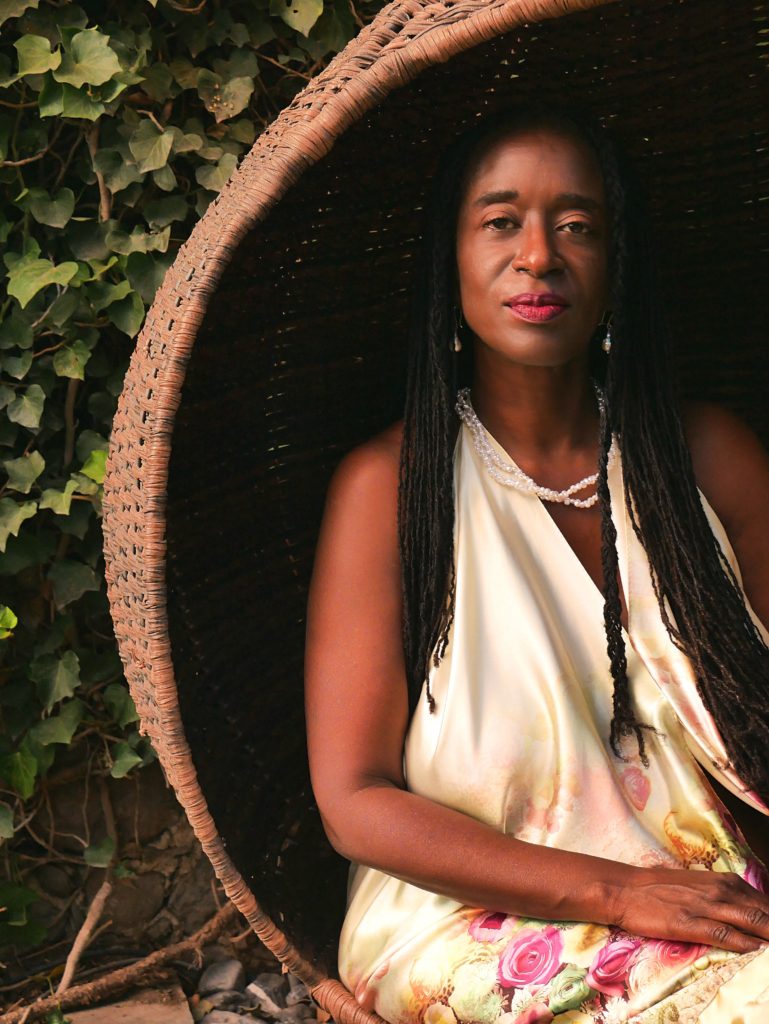
For me the breath control of singing, especially that moment when it syncs with the collective breath or rhythmic movements of a live audience, is a medium of divine and ancestral energy exchange—a sort of natural, singer’s high that can release negativity and even feel like love, peace, and joy in the moment of the song for all involved.
In this experience of being “in the flow,” as some people describe it, time can stand still, giving participants a feeling of being fully present in the moment. It feels like a healing. Listeners of my recorded and live performances often tell me that they have similar sensations when hearing my music, describing it as warm, calming, cathartic, and embracing.
I hope that the new single, as well as the album, conveys the same sensations and emotions. I hope they feel pure, maternal love and care that also stimulates positive personal and societal change. Love through music is medicine for the soul. It’s why I sing. It’s my roots shared with all people from my heart to theirs. I hope they can feel it in, minds, bodies, and souls.
Releasing this song on International Women’s Day is significant. How does “Mother Tongue Mantra” serve as a tribute to the strength and resilience of women, particularly Black women, throughout history?
Women are increasingly maligned as misogyny is an unfortunate response to the intense change and conflict the world is facing. Women of all backgrounds are feeling it, but Black women and women of color especially, as we face racism and sexism. Meditating on the transformative impact of my mother’s life as a Black woman, “Mother Tongue” reminds us of the foundational contributions of all women to not just families but society, history, culture, innovation, and even the cosmos. Our contributions and potential are often invisible, negatively stereotyped, discouraged, or actively oppressed.
Also, as we think symbolically about nature as Mother Earth and our shared humanity, given Mother Africa as the birthplace of our species, the song is a call to action to honor and support maternal energy in its diverse forms for the benefit of all and the next generation.
As will be evident in the video that will come out with the album, ‘Mother Tongue’ also reminds us of the often unrecognized role that our pioneering Black women musical ancestors have had in shaping contemporary music from Sister Rosetta Tharpe to Mahalia Jackson, Miriam Makeba, Nina Simon, Jesse Norman, Angie Stone and more.
In my small, unique, humble but aspiring way, I carry these and my own maternal ancestors in my music. We, like all women, make history, shaping life, innovation, and the future for all humanity. I truly hope the song becomes an active mantra to remember and advance the capacity of women, as the collective future of humanity and the planet depends on it.
You’ve created a powerful body of work, blending art, activism, and cultural preservation. What’s next for you musically and in your advocacy work, and how do you plan to continue using your platform for social change?
Such good questions and so much to say. I’m already on my third album in just the past 3 or 4 years. I just finished writing and recording a new soul salsa song called “Cosmic Love Fusion” about love as healing energy. I’m excited because it’s a danceable blachant, given that many of my original songs have a slower tempo. I’ll likely release it as a single in late Spring 2025. It will be on the ‘Mother Tongue’ album that I hope comes out in late summer 2025.
Another new song came to me as I was standing in line at a telephone store for a really long time late last year trying to get some service. I suddenly realized in the moment that bureaucracies worldwide have a somewhat shared cadence and melody. I even started humming and clapping the sound signature I heard at the store, teaching it call and response style to the other annoyed customers in line, who joined in.
After all, making a fun song and solidarity out of the situation was better than allowing anger to raise our collective blood pressure! Working on it as I had time over the ensuing 6 months or so, the song “Waitinline Blues” was born. I recorded it in the same studio session as “Mother Tongue Mantra.” Noted arranger, trumpet player, and music educator Kris Johnson arranged the instrumentals for both Wait inline Blues and Cosmic Love Fusion.
I’m already working on my 4th album, drawing on original songs that emerge as work to live my best life with joy and gratitude despite grief about my dear mother’s passing. I also am grieving what seems like the societal loss of love, kindness, and human rights so fundamental to my faith and values. As a result, my 4th album is emerging as a soulful blues project that might include the “Waitinline Blues” song if I don’t put the latter on the ‘Mother Tongue’ album.
I’m planning two books as well. I’ve written several books and articles on technical topics in philanthropy, anthropology, and evaluation science over my 42-year career. But now that I’m focused more on the Afroculture economy, cultural preservation, music, and arts, my new book projects are in development for a more public audience, integrating new technologies to make them even more accessible. Beyond mourning the losses of the times, I am trying what little I can do to make a practical difference through philanthropy and coaching next-generation leaders too.
My music is about activated love of humanity and our planet, that is philanthropy, in several ways. It explores the complex dimensions of love in many forms. But I’m also trying to walk the talk of love in how I organize the business of the music. Soul Fusion is a not-for-profit project of the WISE Fund using grants, individual donations, and some earned income from music sales.
Whenever possible, after fairly paying for the production costs of the music, I make donations from our all-too-rare surpluses to local charities in the USA, Mexico, Brazil, the Caribbean, and Africa, the primary places where I live or make music.
Furthermore, I’m trying to expand WISE’s Music for Change program, Soul Fusion, including our music, festival, and concert activities to support next generation artists; raise public awareness of Afromusic roots; promote economic and cultural equity for artists and their communities; advance intercultural connections; and develop more resources for our philanthropy program, thus, ensuring the music has an even broader public benefit that outlives me.
Building on my Afroheritage, I am doing my best with others to ensure the music is not just entertainment but a memorable, life-changing force for good in the world for everyone, including Black women innovators and musicians. Thanks for giving me a forum to share the story, vision, and music. I hope people will join us by listening to and sharing the music and participating in our other activities.

